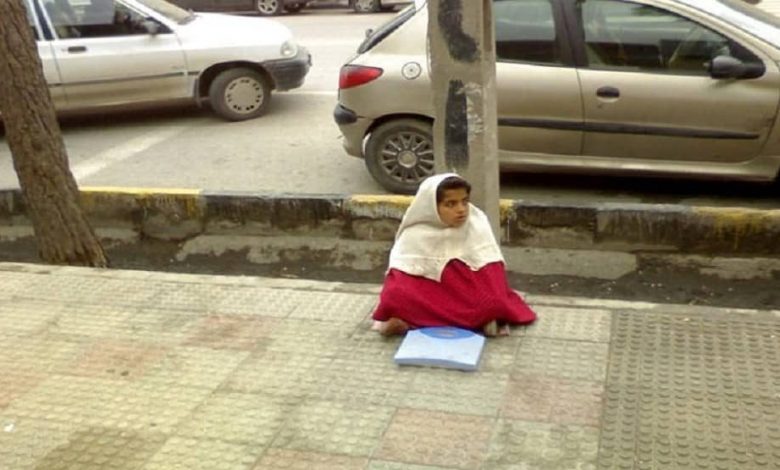Iran’s Economic Crisis: Nearly 20 Million Citizens in Absolute Poverty

Written by
Mansoureh Galestan
Iran-poverty
Iran’s economic crises, rooted in rampant state corruption, inflict profound suffering on its people, plunging them into the depths of absolute poverty. The current situation has forced officials and state media to acknowledge the country’s financial calamity.
“19.7 million people across Iran are deprived of basic life facilities such as housing, employment, education up to 12 years, health, food, and clothing,” said Ali Agha-Mohammadi, a member of the regime’s Expediency Council, according to the state-run Setar-e Sobh newspaper on May 21.
This fact was confirmed by Behrouz Mohebi, a member of parliament. “Unfortunately, nearly 20 million people in the country are not in favorable conditions, and there are about 3 million households that are in absolute poverty. This statistic is also known in the welfare system, and these people should be given serious and basic help,” Setar-e Sobh quoted Mohebi as saying.
“The poverty and sufferings of the people are deeper than anyone can understand. The situation is worse than the figures presented. The number of people who are below the absolute poverty line is more today,” Setar-e Sobh quoted Hossein Raghfar, a state-affiliated economist, who responded to the announced engineered figures.
For years, the Iranian regime and its apologists have attempted to blame sanctions as the sole culprit for Iran’s economic turmoil. While sanctions have a secondary effect and the real problem is the regime’s pervasive corruption, it is worth noting that the sanctions were imposed in response to the regime’s malicious behavior and could be lifted if they cease their illicit activities.
Iran’s economic crisis worsens every day, despite its rich resources. Authorities’ self-boasting rhetoric prevents them from admitting that they are overwhelmed by economic pressures and face an explosive society.#IranRevoIution https://t.co/hvqGmZ1RNY
— NCRI-FAC (@iran_policy) April 10, 2023
“The main issue is that this system is not able to increase the welfare of the people of the country. In other countries of the world, they provide the welfare of the people without oil revenues, and by collecting taxes from the owners of the income, they have created an active and dynamic economy,” Raghfar said in this regard.
Instead of imposing taxes on the state-affiliated rich people and officials, Ebrahim Raisi’s government has increased taxes on ordinary people who can barely make ends meet. The huge financial institutions controlled by the Revolutionary Guards (IRGC) and the Supreme Leader, Ali Khamenei, are systematically exempted from taxation.
Raghfar tacitly confirmed this by saying, “The people who have to stabilize the tax are the same people who have to pay the tax, and as a rule, this will not happen in the country, so with such a device, the current state of the income distribution cannot be organized.”
Khamenei’s stranglehold on Iran’s economy is absolute, with the IRGC’s foundations and his own institutions serving as the primary conduits for the country’s financial resources, all of which end up in their pockets. The so-called “privatization plan” introduced by Khamenei in 2004 has merely legitimized the IRGC’s economic hegemony, allowing them to tighten their grip on all facets of Iran’s economy through their network of “private” front companies, effectively impeding any potential for economic progress.
“To realize economic growth certain institutions should be removed from the economy. As long as they are active in the country’s economy, we will not see any important changes, and the situation will not improve,” Raghfar said in this regard.
The current state of Iran’s economy has ignited a spark of dissent, turning the society into a veritable powder keg. The recent nationwide uprising was primarily fueled by the country’s dire financial predicament, compounded by the regime’s blatant refusal to tackle the issue head-on. The Iranian people have identified the regime as the root cause of their suffering, with their main protest slogan ringing loud and clear: “Poverty, corruption, and high prices – we shall continue until regime change.”
Iran’s currency (rial) and economy are on the verge of another crisis
Since the increasing economic problems can exacerbate society’s restiveness, Raghfar warns his peers to not “ignore people’s wishes.”
“People’s wishes should not be ignored. We need fundamental changes in the political structure of the country. The possibility of real participation of people in the economic field should be provided,” he said.

